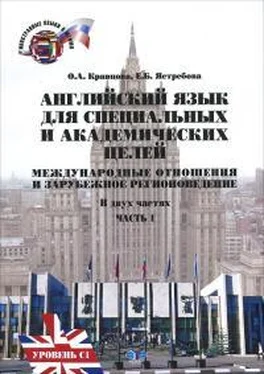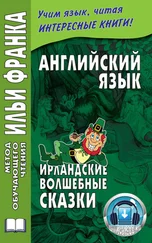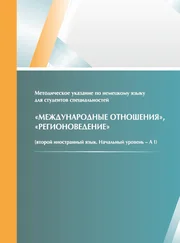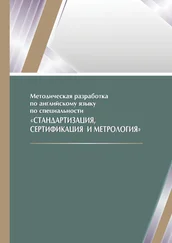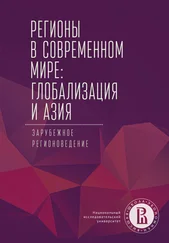States cannot easily split their way to happiness, and working out how to accommodate differences can improve them. It makes them more tolerant, pluralist and open, and teaches central governments how to relinquish power. When nations cannot bear to hold together, they must of course separate. But Britain has not reached that point. Scottish nationalists like to say, cheerfully, that their nation is capable of standing on its own. It certainly is. That doesn't mean it should.
Notes
1. Caledonian is a geographical term used to refer to places, species, or items in or from Scotland, or particularly the Scottish Highlands. It derives from Caledonia, the Roman name for the area of modern Scotland.
2. Adam Smith (16 June 1723 — 17 July 1790) and David Hume (26 April 1711 — 25 August 1776) — Scottish philosophers and economists, the key figures of the Scottish Enlightenment. Adam Smith laid the foundations of the classical free market economic theory.
3. Alexander Elliot Anderson Salmond (English pronunciation: /'samand/; born 31 December 1954) is a Scottish politician who served as the fourth First Minister of Scotland from 2007 to 2014. He was the leader of the Scottish National Party(SNP) for over twenty years, having served for two terms, firstly from 1990 to 2000 and subsequently from 2004 to 2014. Politically, Salmond is one of the foremost proponents of Scottish independence, repeatedly calling for a referendum on the issue. The day after the 2014 independence referendum, at which a majority of the Scottish people voted to remain as part of the United Kingdom, Salmond announced his intention not to stand for re-election as leader of the SNP at the SNP National Conference in November, and to resign as First Minister thereafter. He was succeeded in both capacities by Nicola Sturgeon.
4. Anthony Charles Lynton Blair (born 6 May 1953) is a British Labour Party politician and philanthropist. Blair served as the Prime Minister of the United Kingdom from 1997 to 2007. He was the Member of Parliament (MP) for Sedgefield from 1983 to 2007 and Leader of the Labour Party from 1994 to 2007. Blair led Labour to a landslide victory in the 1997 general election, winning 418 seats, the most the party has ever held. The party went on to win two more elections under his leadership: in 2001, in which it won another landslide victory, and in 2005, with a reduced majority. In the first years of the New Labour government, Blair's government introduced the National Minimum Wage Act, Human Rights Act and Freedom of Information Act, and carried out devolution, establishing the Scottish Parliament, the National Assembly for Wales, and the Northern Ireland Assembly, fulfilling four of the promises in its 1997 manifesto.
5. James Gordon Brown (born 20 February 1951) is a British Labour Party politician who was the Prime Minister of the United Kingdom and Leader of the Labour Party from 2007 until 2010. He previously served as Chancellor of the Exchequer in the Labour Government from 1997 to 2007. Brown has been a Member of Parliament (MP) since 1983, first for Dunfermline East and currently for Kirkcaldy and Cowdenbeath.
After initial rises in opinion polls following Brown becoming Prime Minister, Labour's popularity declined with the onset of a recession in 2008, leading to poor results in the local and European elections in 2009.
On 10 May 2010, Brown announced he would stand down as leader of the Labour Party, and instructed the party to put into motion the processes to elect a new leader. On 11 May, he officially resigned as Prime Minister and Leader of the Labour Party. He was succeeded as Prime Minister by David Cameron, and as Leader of the Labour Party by Ed Miliband.
Later, Brown played a crucial role in the campaign surrounding the Scottish independence referendum of 2014, galvanizing support behind maintaining the union.
Unit I. UK: from Empire to Democracy
Unit I. UK: from Empire to Democracy
6. stockbroker belt (Human Geography) Brit — the area outside a city, esp. London, in which rich commuters (who traditionally vote for the Conservative Party) live
7. amour proper — a sense of one's own worth; self-respect, from French ‘love of oneself'
8. extortion racket — a criminal offense of obtaining money, property, or services from a person, entity, or institution, by use of intimidation or threats (here used metaphorically)
COMPREHENSION ASSIGNMENTS
A. In pairs, discuss how you understand the phrases/clauses below. If still in doubt, discuss the phrases as a class.
1. ... a 307-year-old union, which once ruled a third of humanity and still serves as a role-model to many;
2. ... it is the nationalists who have fire in their bellies;
3. . a narrow victory for the status quo;
4. . Scottish whingeing and freeloading;
5. It is, of course, possible that independence would cure Scotland's entitlement culture and revive its entrepreneurial side.
6. But their statist philosophies are more likely to drive Edinburgh's fund managers, . and other talented Scots south.
7. Independence would also impose one-off costs .
8. . that hardly suggests a Scottish administration straining at a leash held tight by Westminster.
9. The devolution of powers to Scotland has been a mild extortion racket .
10. . the flow has gone to Westminster rather than away from it.
B. Answer the questions on the text.
1. What are the Scottish nationalists' arguments in support of Scotland's independence?
2. How does the article refute the arguments?
3. Why, according to the Economist, is the union worth preserving?
4. In what way should the union be changed?
Speak Up
DISCUSSION QUESTIONS
1. Do you think the tone of the article is condescending to the Scots? If so, can you prove it?
2. Does the article make a compelling case for retaining the union?
3. Why do you think the Scots voted ‘no' to independence from the UK?
4. Do you think the results of the referendum are a missed opportunity for Scotland?
FOLLOW-UP
Make a three-minute statement on
a) the reforms the UK government will have to carry out after the Scottish referendum OR
b) the history/feasibility of similar referendums in other countries

Use texts from the Reader, readings that you find yourself, and the video below.
Compile a list of Topical Vocabulary necessary to speak on the issue (to be shared in class).

Ex. 4. a) find words in the text to match the definitions below, reproduce the context they are used in;
b) give the words they are formed from or their derivatives;
c) suggest their Russian equivalents;
d) use the words in sentences of your own.
1. the act of breaking up an organization, institution, etc. so that it no longer exists
2. a feeling of satisfaction with a situation or with what you have achieved, so that you stop trying to improve or change things — used to show disapproval
3. a feeling of anger or displeasure about someone or something unfair
4. to be more important or valuable than something else
5. difficult to believe and therefore unlikely to be true
6. something that you think is true although you have no definite proof
Читать дальше
